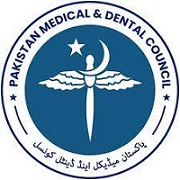HAND HYGIENE PRACTICES IN MEDICAL STAFF OF TERTIARY CARE HOSPITALS OF LAHORE
Abstract
With increasing resistance to antibiotics it has become important to prevent the nosocomial infection. Hence as hand hygiene being the most important prevention intervention, this study aimed at exploring hand hygiene practices in junior doctors and nurses of tertiary care hospital of Lahore to further the need of improvement if established.
Methodology: 40 nurses and 60 house officers were interviewed in this cross sectional survey and were asked about their hand hygiene practices the difficulty in performing hand hygiene and ways to improve it. Results: It was found that 50(50% )respondents used some form of hand hygiene after touching every patients while 13(13%) after touching 2-3 patients and 26(26%) after on an average of 10 patents. 11 (11%) said that if the hands were soiled from patients’ secretions only than they practiced hand hygiene. Vast majority 76 (76%) used alcohol hand rub for hand hygiene predominantly.31 (31%) graded hand hygiene as time consuming, 27 (27 % ) as inconvenient, 22 (22%) as useless, 20 (20% ) said it caused skin dryness/irritation, When asked what are reasons behind poor hand hygiene practice 96 (96%) responded answered high patient load, 74 out of 100( 74%) soap/water/alocohol rub inaccessible. Only 28% of doctors and 17% of nurses correctly identified 5 moments of hand hygiene according to WHO. When inquired what actions can be done to maximize hand hygiene 77 (77%) said regular advocacy seminar, 46 (46%) said vigilant audit from quality control, 64 (64% ) said optimizing patient load/doctor per duty and 74 out of 100 (74%) said that easy access of soap and water and provision of alcohol rub by hospital administration.
Conclusion and Recommendation: Hand hygiene practices were sub optimal and can be improved through regular advocacy seminars, audit, decreasing patient load and providing easy access to soap/water/alcohol rub.






